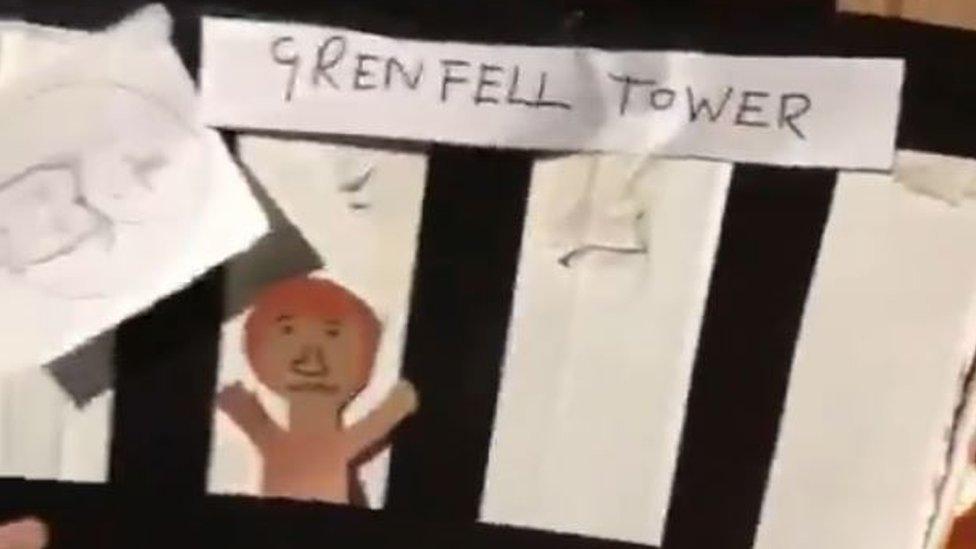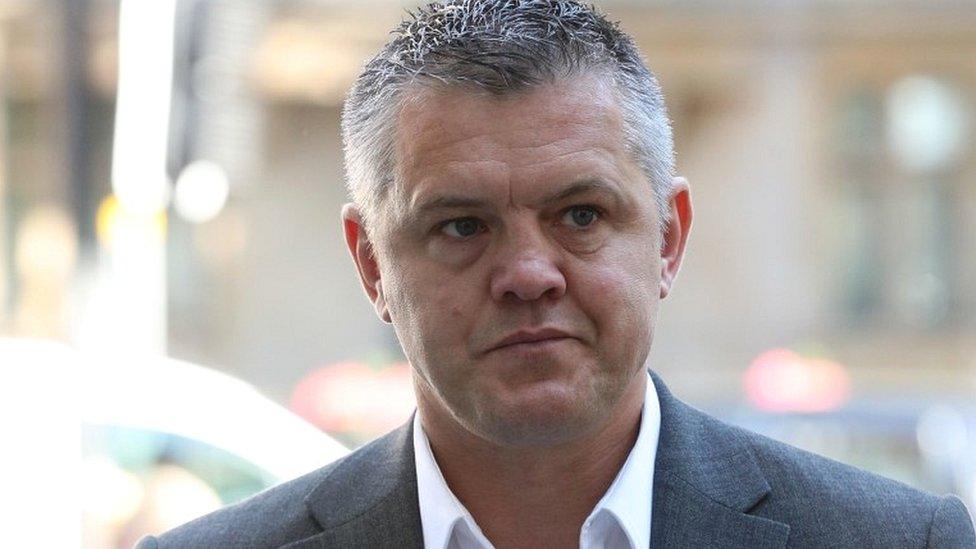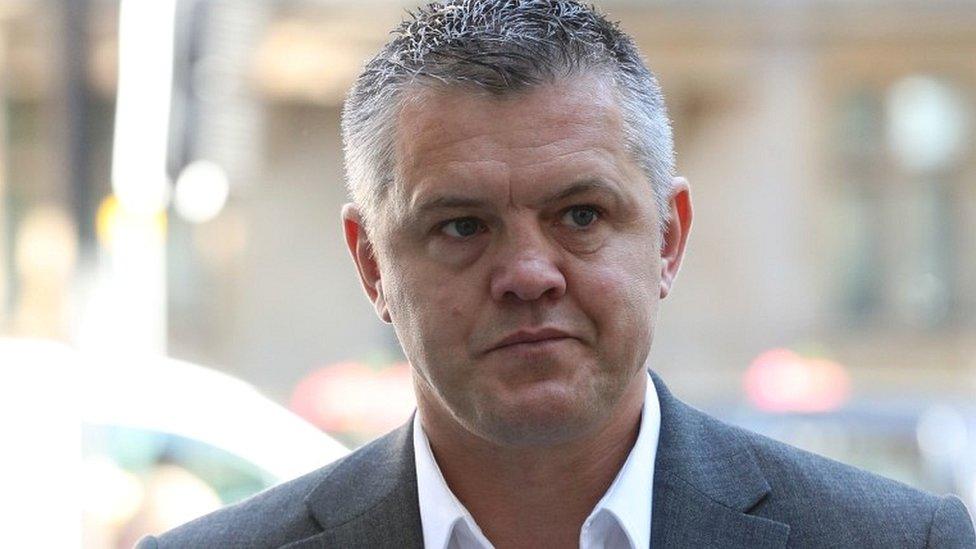Grenfell model bonfire trial: CPS admits late disclosure
- Published

The model was burned at a bonfire party in south London
Evidence in the trial of a man who filmed an effigy of Grenfell Tower being burned should have been disclosed sooner, prosecutors have admitted.
Paul Bussetti was cleared when new information came to light at the end of his trial last month.
The Crown Prosecution Service (CPS) was criticised by chief magistrate Emma Arbuthnot for the "appalling" way it handled the case.
It now admits it "should have disclosed some interview notes earlier".
Mr Bussetti, who had shared material on WhatsApp he filmed at a bonfire party, denied a charge of sending "grossly offensive" material via a public communications network. He denied the footage was racist, arguing it had only been a joke between friends.
A clip of the cardboard building, which had "Grenfell Tower" written on it, was recorded in south London on 3 November, Westminster Magistrates' Court heard.
Footage was later uploaded to YouTube and sparked outrage, with a relative of one of the 72 people who died in the blaze on 14 June 2017 calling it "revolting".
Mr Bussetti, 47, of South Norwood, was cleared when it was revealed a second video from the party had been shared on WhatsApp. His barrister argued there was "absolutely no way" to know which film had been uploaded.

Paul Bussetti denied being a racist
Clearing Mr Bussetti, the chief magistrate called the last-minute disclosure "highly unsatisfactory" and demanded an explanation.
A spokesman for the CPS said: "Managing disclosure is a crucial part of any prosecution. In the case against Mr Bussetti we accept that we should have disclosed some interview notes earlier.
"We will continue our ongoing work in conjunction with the police to improve handling of disclosure."
Following the case, the Met Police said it believed "all due processes were followed correctly" but added it would "carry out a full assessment".
- Published22 August 2019

- Published29 July 2019
